Learn how rheumatologists diagnose and treat a range of musculoskeletal and autoimmune conditions...
Read More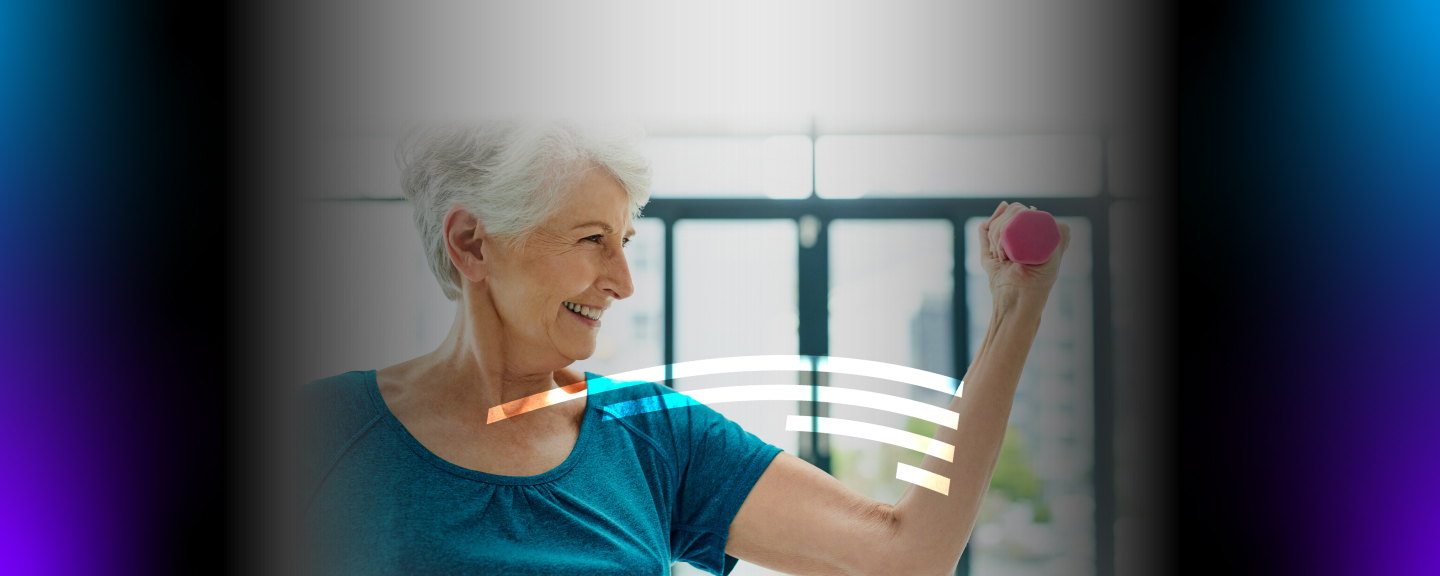
Whether you are just leaving the hospital after amputation or have lived with an amputated limb for years, Inspira’s outpatient amputee rehabilitation program will work to help you improve your abilities based on your individual goals.
Inspira’s outpatient amputee rehabilitation program offers comprehensive, personalized rehabilitation services for pre- and post-prosthetic patients in South Jersey. Physical therapy and rehabilitation can help improve your mobility, strength and overall function, as well as reduce pain and the risk of secondary complications. In addition, outpatient rehabilitation can provide a supportive environment to help you cope with the emotional and psychological challenges of limb loss.
Post-amputation rehabilitation and pre- and post-prosthetic rehabilitation play vital roles in ensuring a smooth transition and maximizing the potential of your journey. Post-amputation rehab can help individuals regain strength and mobility while also ensuring optimal wound healing. Pre-prosthetic rehab helps prepare the residual limb for a prosthesis through exercises to enhance strength, range of motion and wound healing. Post-amputation rehab focuses on prosthetic training, gait improvement and daily task relearning. The goals of a rehabilitation program may include mastering prosthetic use, enhancing mobility, minimizing pain and achieving a fulfilling, independent lifestyle.
Outpatient amputee rehabilitation varies in duration based on individual needs, the type of amputation and the specific goals of the rehabilitation plan. Individuals in this program have the opportunity to work with physical, occupational and recreational therapists, physicians, nurses, psychologists, counselors, case managers and more. Typically, outpatient rehabilitation can last several weeks to months, involving regular sessions focusing on improving mobility, prosthetic use and overall functional abilities.
Our physical therapists are attuned to each individual’s goals and create open lines of communication to reassess those goals consistently. Based on those goals, you may engage in therapy that includes activities such as strength training, dancing, balance training and more. Rehabilitation may also involve a consultation with a prosthetist, allowing precise measurements for a well-fitting prosthesis. The prosthetist's expertise ensures the device is comfortable, functional and aligned correctly, optimizing your prosthetic experience and overall mobility.
Inspira can also provide wound care, pre- and post-amputation surgical consultation, assessments of prosthetic fit, guidance for moving around with or without prostheses and assistance in adapting to daily tasks.
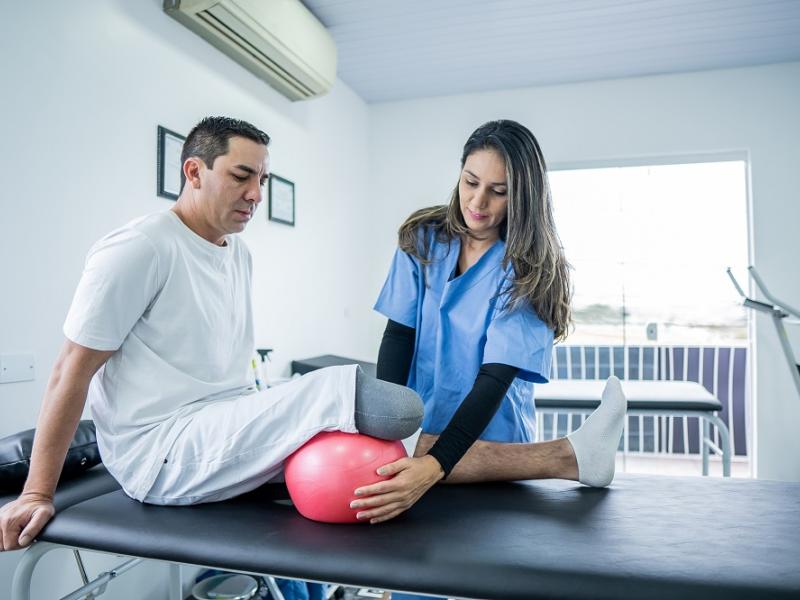
Post-amputation rehabilitation helps individuals regain function and mobility and adapt to their new circumstances while ensuring optimal wound healing and minimizing complications such as contractures, muscle atrophy and joint stiffness. This type of rehab incorporates pain management techniques to alleviate residual and phantom limb pain.
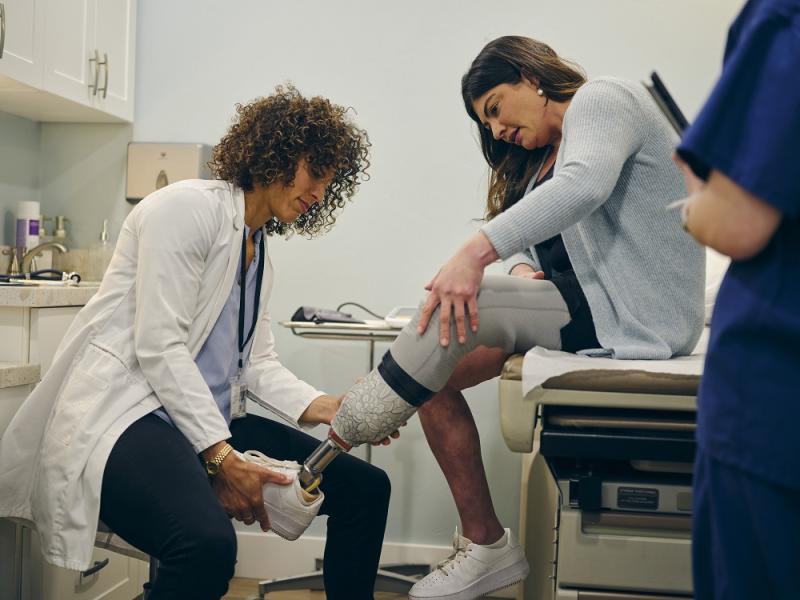
Pre-prosthetic rehabilitation focuses on preparing a person for the successful fitting and use of a prosthetic device. Rehabilitation activities can vary based on an individual's specific needs, abilities and the type of prosthetic they will be using. Individuals who start physical therapy before getting a prosthetic benefit from enhanced strength and flexibility, reduced pain, optimized residual limb shape and faster adaptation to prosthetics.
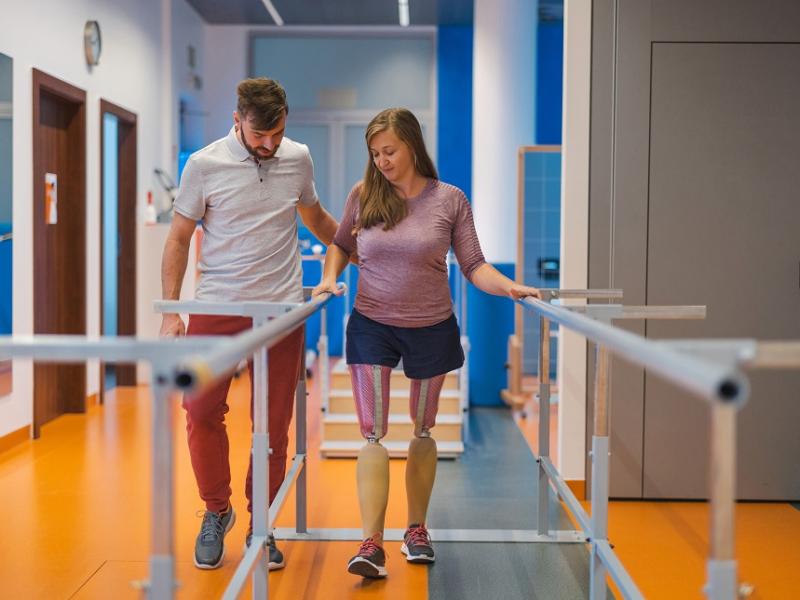
Post-prosthetic rehabilitation focuses on optimizing the use of a prosthetic device after it has been fitted. Rehabilitation activities help individuals adapt to their prosthetics and learn how to use them efficiently, improve balance and coordination, address discomfort and prosthetic fit and regain independence after an amputation.
Before starting outpatient amputee rehabilitation, you will have an initial evaluation with your therapist, where they can get to know you and your goals for rehab. Appointments at Inspira typically last about 60 minutes and occur about 2-3 days per week. Therapy can range from just a few weeks to several months, depending on your goals, your level of function and how quickly you progress. This is a very individualized process, and your therapist can discuss more details about your specific care plan at your evaluation appointment.
On day one of therapy, you should come with your current prosthetic and all accessories you use. Your therapist can assess the optimal fit of your prosthesis and contact the prosthetist for adjustments, if needed, early on in the rehabilitation process.
During a session, you can expect a range of activities, including strength and flexibility exercises, gait training with a prosthetic limb, functional training such as navigating stairs, balance and coordination exercises, mobility training, skin checks, pain management and education about prosthetic care and use. The sessions are tailored to your needs and optimized for rehabilitation progress.
Rehabilitation professionals work closely with patients to assess and address pain, discomfort or skin-related issues associated with long-term prosthetic use. If necessary, sessions can also be collaborative with your prosthetist, focusing on gait analysis to make prosthetic adjustments as needed. In addition, therapists can provide psychosocial support and referrals to other specialists to help you cope with the emotional and mental aspects of amputation, fostering resilience and promoting self-confidence.

Learn how rheumatologists diagnose and treat a range of musculoskeletal and autoimmune conditions...
Read More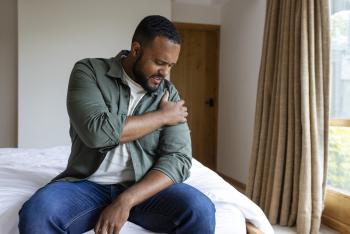
Shoulder pain can result from injuries, arthritis or other conditions, and determining the right...
Read More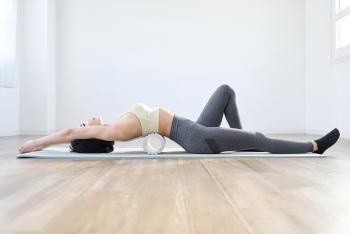
Discover exercise routines targeting specific back pain types to help alleviate discomfort and...
Read More